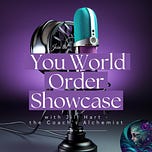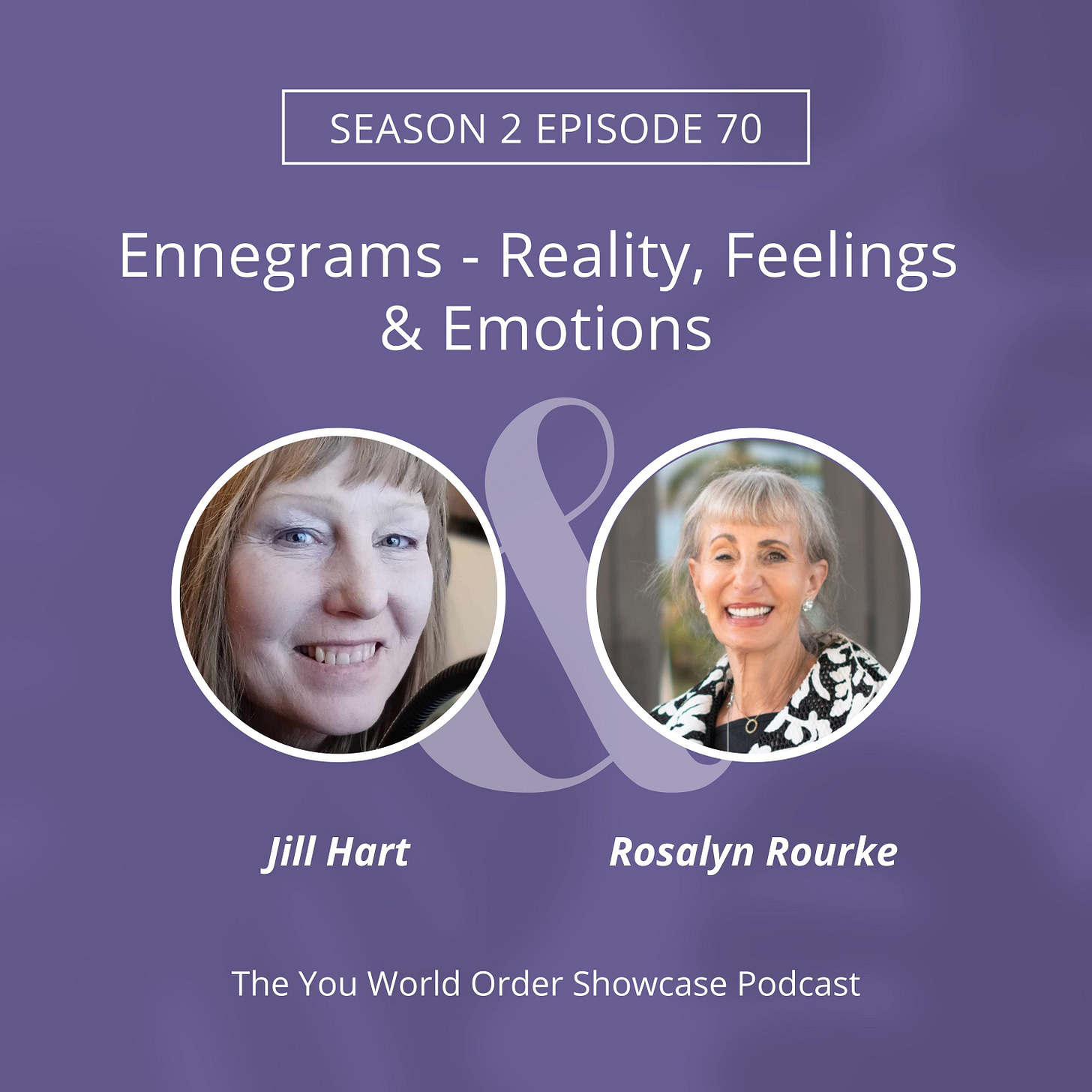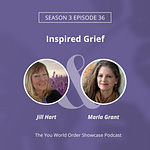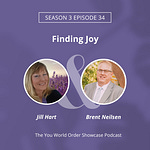n a compelling episode of the You World Order Showcase podcast, Jill Hart interviewed Rosalyn Rourke, a coach, author, and former psychotherapist who specializes in helping people navigate deep personal transformation. One of the most powerful tools Rosalyn uses in her work is the enneagram, a profound system for understanding personality types. Through the enneagram, Rosalyn guides people in healing from trauma, challenging old beliefs, and finding peace. This blog post explores how the enneagram can serve as a transformative tool for trauma recovery, based on Rosalyn’s insightful approach.
The Role of the Enneagram in Trauma Healing
The enneagram is more than just a personality typing system—it’s a dynamic framework that reveals our deepest motivations, fears, and coping strategies. Rosalyn explains that trauma often leaves us stuck in harmful patterns that were once protective but no longer serve us. These patterns become engrained in how we relate to ourselves and others, and without awareness, they can keep us from healing.
By identifying your enneagram type, you can better understand how your personality has adapted to trauma and begin to dismantle the beliefs and behaviors that have held you back. The enneagram shows you not only where you are stuck, but also how to move beyond old habits to embrace a fuller, healthier life.
Uncovering Core Trauma Responses with the Enneagram
Each of the nine enneagram types has its own way of responding to fear, pain, and trauma. For example, some types might retreat into isolation to protect themselves, while others may become overly assertive to avoid feeling vulnerable. Rosalyn emphasizes that these responses, while understandable, often limit us and keep us in cycles of pain.
The enneagram helps you recognize your core patterns and motivations that stem from trauma. Once you identify these patterns, you can begin the process of healing by loosening their grip on your life. Rosalyn explains that this awareness is key to understanding why we continue to repeat certain behaviors, even when they no longer serve us. The enneagram acts as a guide to uncovering these responses and shifting into healthier ways of being.
Moving Beyond Trauma Through Self-Compassion
Rosalyn shares that one of the most challenging aspects of trauma recovery is learning to have compassion for yourself. Trauma often leaves behind feelings of unworthiness, making it difficult to believe that you deserve healing. The enneagram offers a path to self-compassion by showing you that your patterns were once necessary for survival. Understanding your enneagram type allows you to reframe your trauma responses, not as personal failures, but as strategies that helped you cope in difficult times.
Rosalyn also highlights that the enneagram encourages us to embrace all parts of ourselves—both the strengths and the challenges. By accepting the totality of who we are, we create the space for true healing and transformation. Through this lens, the enneagram becomes a tool not only for understanding ourselves but for extending grace and kindness to our wounded parts.
Releasing Limiting Beliefs with the Enneagram
At the heart of Rosalyn’s work is the belief that our thoughts and feelings are not facts. Trauma often leaves us with limiting beliefs about ourselves, such as the idea that we are unworthy or broken. The enneagram helps to break down these beliefs by revealing how they are rooted in outdated coping mechanisms.
By working with the enneagram, you can begin to challenge the narratives you’ve carried since the trauma occurred. For example, you might realize that your need for control (a common trait in certain enneagram types) stems from a fear of vulnerability brought on by past trauma. Recognizing this allows you to release the need for control and step into a more balanced way of living.
Using the Enneagram to Build Healthier Relationships
Trauma often impacts our relationships, making it difficult to connect with others in healthy ways. The enneagram provides insights into how different types interact with each other, helping you understand not only your own patterns but also the dynamics that arise in relationships.
For instance, if you’re an enneagram type that tends to withdraw under stress, recognizing this can help you consciously choose to engage more openly with loved ones rather than retreating. Rosalyn emphasizes that healing trauma is not just about individual work but also about how we relate to others. The enneagram can serve as a tool for building stronger, more authentic connections by helping you navigate the emotional landscape of your relationships with greater awareness and compassion.
Pin it on Pinterest 📌
Healing Trauma by Tapping into Your Potential
One of the most empowering aspects of the enneagram is that it doesn’t just show you your challenges—it also reveals your growth path. Rosalyn explains that every enneagram type has the potential for transformation, and the system offers specific guidance on how to heal and evolve. By following the growth path for your type, you can move beyond the limitations imposed by trauma and step into your highest potential.
This growth is not about becoming someone else but about becoming more of who you truly are, free from the distortions that trauma may have created. The enneagram shows you how to integrate your wounded parts into a more whole and balanced version of yourself, offering a roadmap to healing that is both compassionate and practical.
Conclusion: The Enneagram as a Path to Healing
Rosalyn Rourke’s work demonstrates that the enneagram is not just a tool for self-discovery—it’s a profound method for healing trauma and reclaiming your power. By understanding your enneagram type, you can identify the ways trauma has shaped your thoughts, behaviors, and relationships, and begin to release the patterns that no longer serve you.
If you are seeking a path to heal from trauma, the enneagram offers a compassionate, insightful guide. Through this ancient wisdom, you can learn to embrace all parts of yourself, let go of limiting beliefs, and build healthier connections with those around you. To learn more about how Rosalyn uses the enneagram to support healing and transformation, visit her website at RosalynRourke.com.
Healing is possible, and with the enneagram, you can find a path forward that honors your journey and leads to true peace.
















Share this post